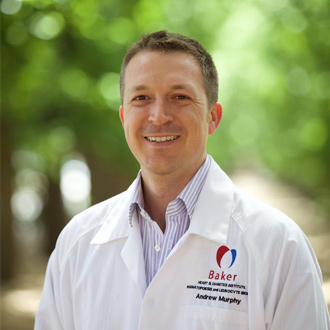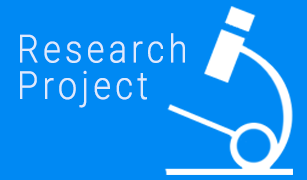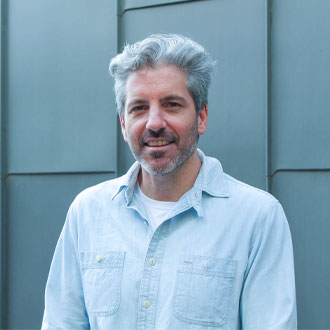About the Haematopoiesis and Leukocyte Biology laboratory
The Haematopoiesis and Leukocyte Biology laboratory focuses on understanding the pathways that drive increased white blood cell (leukocyte) production and altered immune function in chronic diseases — particularly cardiovascular and metabolic conditions.
The inflammation-disease connection
In Western societies, diets high in calories, saturated fat and cholesterol, combined with sedentary lifestyles, contribute to a high prevalence of atherosclerotic cardiovascular disease (CVD). Elevated blood lipids — including low-density lipoproteins (LDL) and triglyceride-rich lipoproteins — enter and accumulate in artery walls, triggering a macrophage-dominated chronic inflammatory process. This can lead to atherosclerotic plaque rupture or erosion, resulting in heart attack or stroke.
While elevated cholesterol plays an essential role in atherogenesis, other conditions accelerate atherosclerotic CVD, including smoking, hypertension, diabetes, chronic kidney disease, recurrent infections, myeloproliferative neoplasms, and autoimmune diseases such as rheumatoid arthritis and systemic lupus erythematosus.
A common thread linking these diverse conditions to atherothrombosis is an overactive immune system, driven partly by increased production and activation of innate immune cells. Our group seeks to understand these immune system changes — from long-lived haematopoietic stem cells in the bone marrow through to mature effector cells such as monocytes and macrophages.
Our research approach
Bone marrow and blood cell production
We study fundamental biological processes that control the retention and release of haematopoietic stem cells (HSCs) within specific bone marrow niches, and how these HSCs and the bone marrow environment become altered in disease. We're particularly interested in how HSCs traffic to the spleen and initiate extramedullary haematopoiesis — blood cell production outside the bone marrow.
Our focus includes how inflammatory diseases associated with increased cardiovascular risk — such as diabetes, obesity and autoimmune diseases like rheumatoid arthritis — influence these pathways. We also explore how these diseases affect the function of circulating cells, including monocytes, neutrophils and platelets.
Atherosclerosis and plaque formation
We have a strong interest in the role of plaque macrophages and the pathways contributing to foam cell formation — a critical step in atherosclerosis development.
Post-event consequences
We're exploring the two main outcomes of vascular disease — heart attack and stroke — and how these events influence the haematopoietic system to promote enhanced myelopoiesis (increased production of certain white blood cells), which is associated with worse outcomes.
Developing new therapies
We're focused on exploring the utility of current treatments and developing novel therapies to target the pathways we've identified in our preclinical models that are also detected in patients with these diseases.
Research focus
Fundamental haematopoiesis regulation
Understanding the basic processes that control blood cell production.
Immune cell lipidomes
Exploring how the lipid composition of immune cells regulates their function.
Multi-organ communication
Understanding how different organs communicate to stimulate blood cell production.
Hyperglycaemic spikes
Determining how the body responds to sudden increases in blood sugar levels.
Disease and atherosclerosis regression
Exploring whether and how inflammatory diseases associated with increased cardiovascular risk impair the reversal of atherosclerotic lesions.
Reticulated platelets in diabetes
Understanding how enhanced reticulated platelets (young platelets) influence accelerated atherosclerosis in diabetes.
Monocyte subsets
Exploring the role of different human monocyte populations in cardiovascular disease.
Foam cell formation
Investigating pathways contributing to foam cell formation in atherosclerotic lesions.
Community engagement
We collaborate with the Baker Institute's Community Engagement Group to embed meaningful consumer and community voices into our research. This engagement has helped shape our study direction, refine recruitment and messaging, and support more relevant, accessible and impactful outcomes for people affected by cardiovascular disease, particularly those living with diabetes, autoimmune conditions, or other inflammatory diseases that increase their risk of heart attack and stroke.
Video: Associate Professor Andrew Murphy presenting at Future Medicine 2016, Germany (2min, 36sec)
Research focus
- Fundamental process regulating haematopoiesis.
- Exploring how the lipidomes of immune cells regulates their function.
- Understand multi-organ communication to stimulate haematopoiesis.
- Determining how the body responds to hyperglycaemic spikes.
- Exploring if and how inflammatory diseases that are associated with increased cardiovascular risk impair the regression of atherosclerotic lesions.
- Understanding how enhanced reticulated platelets influence accelerated atherosclerosis in diabetes.
- Exploring the role of human monocyte subsets in cardiovascular disease.
- Investigating pathways contributing to foam cell formation in the atherosclerotic lesion.








